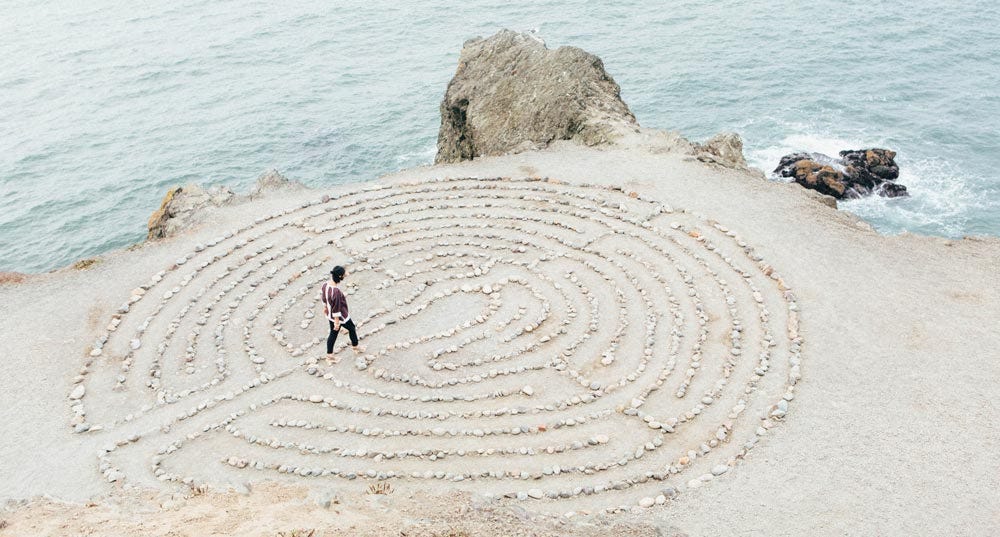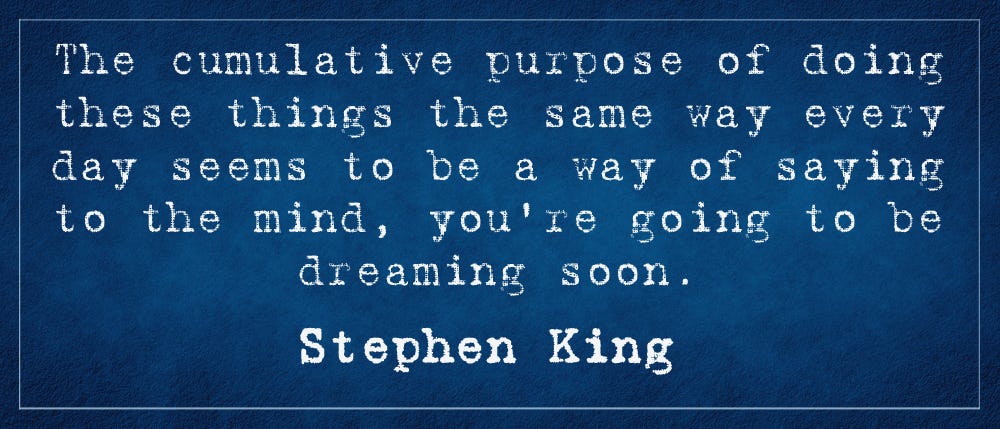Meanwhile, in medieval Japan, Lord Yamanouchi loved his Tea Master so much that he made him samurai. It was an honorary title, sort of like getting knighted. Except that back then, there were real samurai – and they didn’t take kindly to posers.
One evening, when the Tea Master was out with his buddies in a foreign city, they stepped aside to let two real samurai pass, as was custom. One took offence – either the Tea Master was a weak and pathetic samurai to show such deference, or he was an imposter. Given the size and shape of the Tea Master, the samurai guessed both.
“How dare you wear the samurai robes when you are clearly a humble Tea Master?” the warrior demanded.
The Tea Master, shaken, said, "My Lord gave me the rank and robes and bade me wear them."
The samurai was having none of it. He challenged the Tea Master to a duel at dawn. If he was going to dress like a samurai, he could die like a samurai.
That night, his friends tried to think of ways to get him out of this fine mess. But the Tea Master didn’t want to bring disgrace to his family. He asked a weapons expert to train him – not on how to fight, but how to die honourably. The expert agreed but asked him to first undertake his famous tea ritual one last time. The Tea Master obliged, clearing his mind of all else except his mesmerizing preparation of the tea. And the expert said, “Do that same ritual with your sword to prepare yourself for battle, raise the sword above your head, and close your eyes.”
The Tea Master did the ritual, then raised his sword above his head as the expert instructed. The samurai, perhaps impressed with Tea Master’s samurai-like mindfulness, apologized for being a jerk and walked away.
The Power of Ritual
The moral of the story of course is that a mindful ritual can help you prepare for anything, from dying (or preventing death) at the hands of a samurai to something much, much harder, such as writing.
A pre-writing ritual can really help you in several ways:
Get you into a writing frame of mind – I don’t know about you, but when I’m writing, I’m usually not present in the “real” world. A ritual makes it faster and easier to pass through that door between the real world to the place in your mind where you write the best.
Wake up your Muses and get the creativity flowing – This is similar to the first point, but with an important difference. You can be in your writing frame of mind, but that doesn’t necessarily mean that the creativity is flowing yet. You need to let it warm up, like a car in the winter.
A ritual can also be like Pavlov’s dog – that famous experiment in which Pavlov taught a dog how to salivate by ringing a bell every time he fed it. By the end of the experiment, the dog would salivate at the ringing of the bell, even if there wasn’t any food.
And that’s what we want to do. We want our minds to salivate with creativity so we are ready to write from the moment we sit down.
Get rid of distractions – Probably more accurately, a ritual helps you ignore distractions. You know what it’s like when you’re zoned in on something – it’s hard to draw your attention away. In a more literal sense, you can make getting rid of your distractions part of your ritual – hiding your phone, closing your web browser, shutting the door, and so on.
I have a ritual for when I’m working on a novel. I brew some tea – lately, it’s been London Fog – and I get myself two novel-writing cookies. Yes, novel-writing cookies. These are Voortman fudge-striped oatmeal cookies that I only eat when I go down to work on a novel. That’s important. I need to keep them special, because if they were any old cookie, it wouldn’t have the same effect.
Here’s Stephen King talking about his own morning writing ritual (along with some other writers).
How to Make Your Own Pre-Writing Ritual
So how do you make your own ritual? It’s fairly easy, but there are a few key things you need to include to really make it work.
Make your ritual something you enjoy, not something you dread. There’s that scene in The Da Vinci Code when the Opus Dei guy straps that spiked belt around his thigh to prove his dedication to the cause. This, I’ve found, is counterproductive for writers. Your pre-writing ritual should be more associated with reward than punishment.
Make it special. Like those novel-writing cookies that I only have when I’m working on my novel. Again, it’s a treat that provides positive reinforcement. The “treat” doesn’t have to be a cookie or anything sweet. You could have a specialty tea or coffee, or maybe a particular apple, or a butter leaf salad if that’s your idea of special. It doesn’t have to be something to eat or drink either – just something that makes you happy and will help get you into the right frame of mind. Pulling out your favourite stuffy, lighting a dedicated writing candle, or touching a special item before you start writing can work, too.
Involve some sort of physical activity. You don’t have to have a workout – the “physical” part could be as little as making tea. Many writers go for a walk or do pushups. You could take a shower, put on special clothes, or rearrange a set of Star Wars figurines on your bookshelf. Anything that gets your body moving in a precise, somewhat repeatable pattern.
To circle back to the Tea Master and the Samurai story – a tea ritual usually involves all these things: a repeatable pattern, mindfulness, and withdrawing from the “real” world. I’m certainly no expert, so Google “tea ritual” to learn more. You might find some inspiration there!
The three most important things to remember though are:
Do roughly the same thing every time. For example, don’t walk one day and make tea the next. That being said, if you find one thing isn’t working, by all means try another.
Don’t multi-task during your ritual like texting or reading the news. Your mind should be losing focus with the world around you, not involving you with it. Avoid people while you’re doing your ritual if you can.
Think about what you might want to write today. You can start by thinking about what you wrote yesterday. You can think about your characters. Anything really to get your mind working and start the creativity flowing.
Key Takeaway: a pre-writing ritual helps you get into that trance or dream-like state, and gets your creative juices flowing.
Speaking of dream-like state, the tea making ritual video below is relaxing and trance-inducing in itself. Scroll down to the bottom – maybe simply watching this video can be your ritual!
Until next time, keep writing with wild abandon!
~Graham
PS - one day I’ll write a post about how writing community can help keep writing fun — and keep you productive. I am lucky to be part of at least four writing groups. Most recently, I connected with some other Substack writers through the Substack Go program. I’m lucky to be part of such an amazing group of writers who have helped me as I developed this newsletter. Here’s a shoutout to them and their newsletters:










